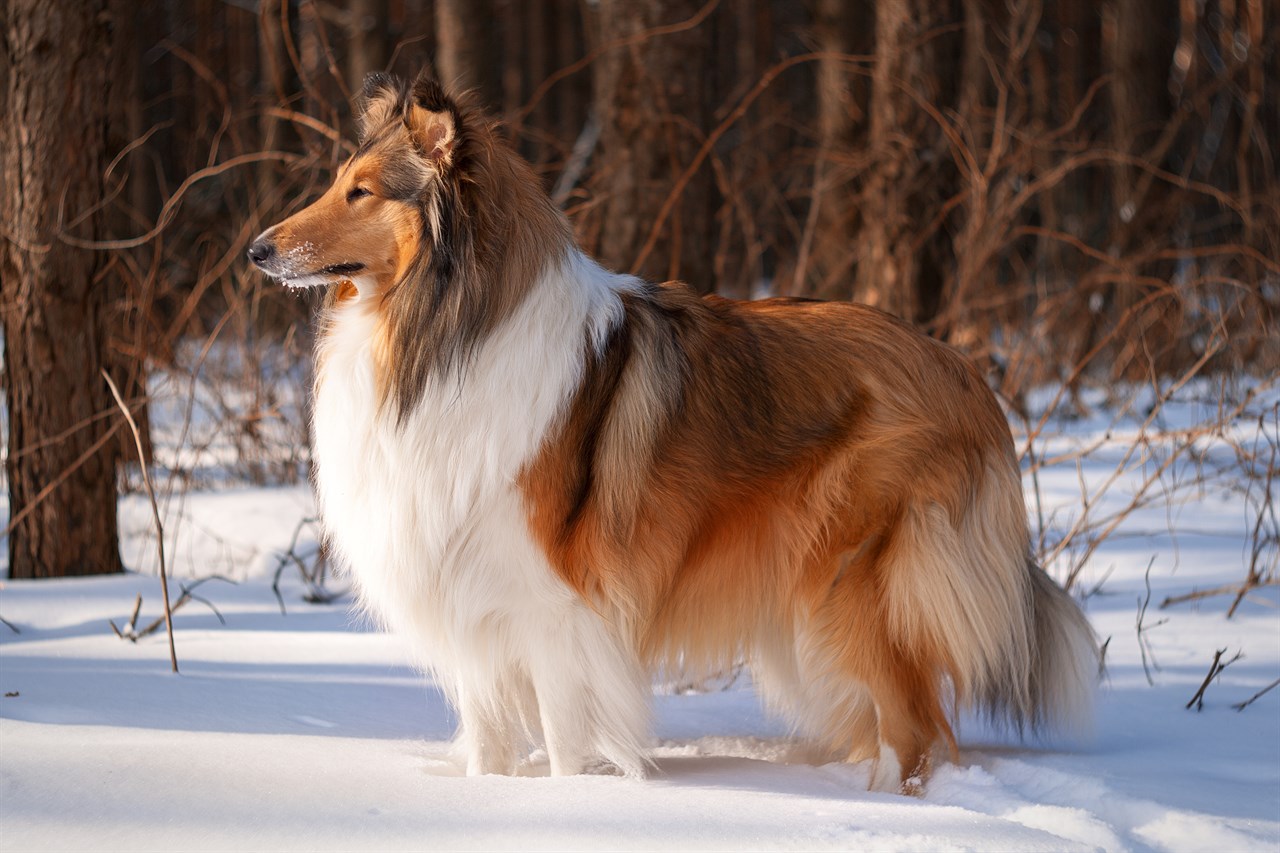Rough Collie Temperament and Behaviour

The Rough Collie is renowned for its exceptional temperament, which combines intelligence, loyalty, and gentleness. These dogs are known for being wonderful companions and can make excellent family pets. Let's delve into the various aspects of their temperament and behaviour.
Intelligence
Rough Collies are highly intelligent dogs, ranking among the top breeds in terms of cognitive abilities. This intelligence makes them quick learners and eager to please their owners, making them excellent candidates for obedience training and various dog sports.
Loyalty
Loyalty is a hallmark of the Rough Collie's personality. These dogs form strong bonds with their families and are known for their devotion. They thrive on human interaction and are often described as "velcro dogs" because they enjoy being close to their owners.
Gentleness
Rough Collies are generally gentle and good-natured, making them suitable for families with children. Their patient and tolerant nature means they can handle the energy and curiosity of kids with grace.
Herding Instinct
While they may not have a flock of sheep to tend to these days, many Rough Collies still exhibit herding instincts. They may try to "herd" family members or even other pets by gently nudging or circling them.
Alertness
Collies are naturally alert dogs, and they often make excellent watchdogs. They'll let you know if something is amiss with their bark, but they are not typically aggressive.
Sensitivity
Rough Collies are sensitive souls. They are attuned to their owners' emotions and can provide comfort and companionship during difficult times.
Playfulness
Despite their calm demeanour, Rough Collies enjoy playtime and can be quite playful when engaged with toys or outdoor activities.
Trainability
Their intelligence and eagerness to please make them highly trainable. They respond well to positive reinforcement training methods.
Barking
Collies can be prone to barking, especially when they are bored or not given enough mental stimulation. Proper training and socialisation can help manage this tendency.
Socialisation
It's essential to socialise Rough Collies from a young age to ensure they are comfortable around other dogs and different people. This helps prevent shyness or excessive timidity.
Do Rough Collies Cuddle?
Yes, Rough Collies are known for their affectionate nature and often enjoy cuddling with their owners.
Are Rough Collies Well Behaved?
Yes, Rough Collies are generally well-behaved dogs, particularly when they receive proper training and socialisation.
How Aggressive Are Rough Collies?
Rough Collies are not known for being aggressive. They are typically gentle and good-natured dogs. However, like all breeds, individual temperament can vary, and some Rough Collies may display aggression if not properly socialised or if they feel threatened.
Will a Rough Collie Protect You?
While Rough Collies are not aggressive guard dogs, they are loyal and may bark to alert you to potential intruders. However, their protective instincts are more about warning than aggression.
Are Rough Collies the Most Aggressive Dog?
No, Rough Collies are far from being considered the most aggressive dog breed. In fact, they are often noted for their gentle nature.
Are Rough Collies Calm Dogs?
Yes, Rough Collies are generally calm and composed dogs. They are not known for being hyperactive or overly excitable.
Do Rough Collies Like to Cuddle?
Yes, many Rough Collies enjoy cuddling and being close to their human companions. Their affectionate nature makes them great cuddle buddies.
Why Would a Collie Be Aggressive?
Aggression in Collies is not typical, but it can occur due to various reasons such as fear, poor socialisation, pain, or a history of abuse. It's essential to address the underlying cause and seek professional help if aggression issues arise.
Do Rough Collies Love Their Owners?
Yes, Rough Collies are known for their deep affection and love for their owners. They form strong bonds and thrive on the companionship and attention of their human family members.
How Are Rough Collies With Other Dogs?
When properly socialised from a young age, Rough Collies can get along well with other dogs. Their gentle nature often makes them good playmates at dog parks and in multi-dog households. However, as with any breed, individual temperament can vary, so early socialisation is crucial to ensure positive interactions with other dogs.
In summary, the Rough Collie is a breed known for its intelligence, loyalty, and gentle nature. They are wonderful companions that often form deep bonds with their families and excel in roles ranging from family pet to therapy dog to loyal friend. While not known for aggression, like all dogs, proper training and socialisation are key to ensuring they develop into well-behaved and well-adjusted individuals.
Collie (Rough) puppies for sale
- Find Collie (Rough) puppies for sale in ACT
- Find Collie (Rough) puppies for sale in NSW
- Find Collie (Rough) puppies for sale in NT
- Find Collie (Rough) puppies for sale in QLD
- Find Collie (Rough) puppies for sale in SA
- Find Collie (Rough) puppies for sale in TAS
- Find Collie (Rough) puppies for sale in VIC
- Find Collie (Rough) puppies for sale in WA